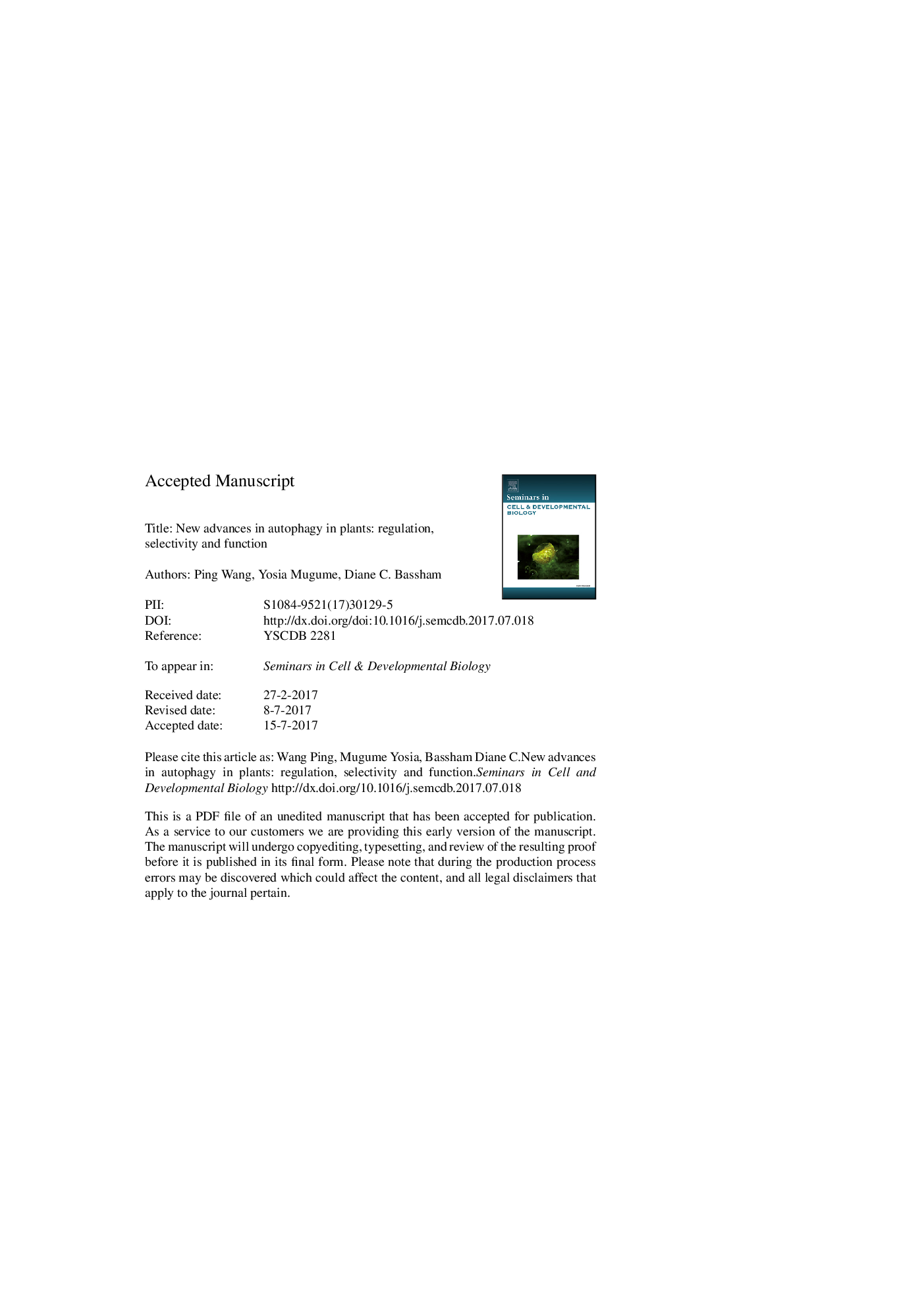| Article ID | Journal | Published Year | Pages | File Type |
|---|---|---|---|---|
| 8479590 | Seminars in Cell & Developmental Biology | 2018 | 25 Pages |
Abstract
Autophagy is a major and conserved pathway for delivering unwanted proteins or damaged organelles to the vacuole for degradation and recycling. In plants, it functions as a housekeeping process to maintain cellular homeostasis under normal conditions and is induced by stress and senescence; it thus plays important roles in development, stress tolerance and metabolism. Autophagy can both execute bulk degradation and be highly selective in targeting cargos under specific environmental conditions or during certain developmental processes. Here, we review recent research on autophagy in plants, and discuss new insights into its core mechanism, regulation, selectivity and physiological roles. Potential future directions are also highlighted.
Keywords
UIMsPI3KJnkNbr1TORNeighbor of BRCA1 gene 1NAP1ESCRTNREPCDATGUPRNUEUVBc-Jun N-terminal kinaseROSAutophagyNitrogen use efficiencySalicylic acidUltraviolet-BBARBrassinosteroidSelective degradationendoplasmic reticulumtracheary elementphosphatidylethanolaminephosphatidylinositol-3-kinaseendosomal sorting complex required for transportautophagy-relatedProgrammed cell deathRegulationElectron microscopyAIMtarget of rapamycinUnfolded protein responseStress responsesReactive oxygen speciesPlants
Related Topics
Life Sciences
Biochemistry, Genetics and Molecular Biology
Cell Biology
Authors
Ping Wang, Yosia Mugume, Diane C. Bassham,
